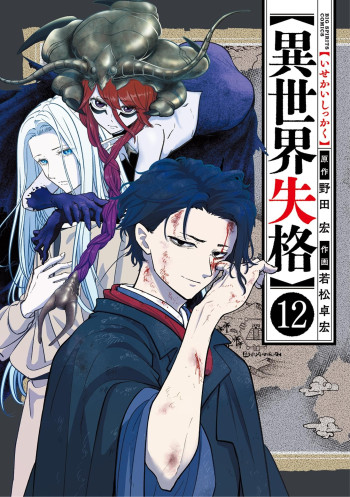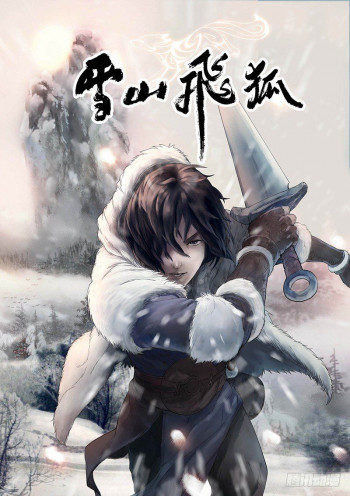Summary

Maia (Beklan Empire 1)
by Richard Adams
Maia, a peasant girl in the mythical Beklan Empire, is sold into slavery, but a turn of fate sees her become a successful concubine, then a national heroine......
.
Read
Maia (Beklan Empire 1) on http://kissnovel.net
Martial Peak Reviews
Maia, the first installment in Richard Adams' Beklan Empire series, is a richly woven tapestry of adventure, resilience, and transformation. Set against the backdrop of a mythical empire, the narrative follows the life of Maia, a peasant girl whose journey from slavery to national heroine is both captivating and thought-provoking. Adams, best known for his classic work Watership Down, brings his signature storytelling prowess to this new realm, creating a world that is as immersive as it is enchanting.
The story begins with Maia's tragic circumstances as she is sold into slavery, a fate that many in her society face. This initial setup serves as a powerful commentary on the themes of oppression and survival. Adams does not shy away from the harsh realities of Maia's life; instead, he uses them to highlight her strength and resilience. The early chapters are filled with a sense of despair, but they also lay the groundwork for Maia's character development. As she navigates the treacherous waters of her new existence, readers witness her transformation from a frightened girl into a woman of agency and influence.
Character development is one of the book's strongest elements. Maia is portrayed with depth and complexity, making her journey relatable and inspiring. Her evolution is marked by pivotal moments that challenge her beliefs and force her to confront her circumstances. The relationships she forms along the way, particularly with other concubines and her eventual patrons, add layers to her character. Adams skillfully explores the dynamics of power and vulnerability, illustrating how Maia learns to wield her influence in a world that seeks to subjugate her.
One of the most compelling aspects of Maia is its exploration of feminine strength and solidarity. The women in Maia's life, whether allies or adversaries, are portrayed with nuance. Adams captures the complexities of female relationships, showcasing both rivalry and camaraderie. This theme resonates deeply, especially in a contemporary context where women's stories are often marginalized. Maia's journey is not just about her individual triumph; it reflects a broader narrative of women supporting each other in the face of adversity.
The world-building in Maia is another highlight of the novel. Adams crafts the Beklan Empire with meticulous detail, creating a setting that feels both fantastical and grounded. The cultural intricacies, social hierarchies, and political machinations of the empire are vividly depicted, allowing readers to immerse themselves fully in Maia's world. The descriptions of the landscapes, the customs, and the societal norms enrich the narrative, making it a feast for the imagination. Adams' ability to blend the mythical with the realistic is reminiscent of authors like J.R.R. Tolkien and Ursula K. Le Guin, who also excel in creating immersive worlds.
The pacing of the novel is well-balanced, with moments of tension interspersed with quieter, introspective scenes. Adams knows when to ramp up the stakes and when to allow readers to breathe, creating a rhythm that keeps the narrative engaging. The plot twists are both surprising and satisfying, ensuring that Maia's journey is filled with unexpected turns that keep readers on their toes.
Adams also delves into the theme of identity and self-discovery. As Maia navigates her new life, she grapples with questions of who she is and who she wants to become. This internal conflict is relatable and adds depth to her character. The exploration of identity is particularly poignant in a world where societal roles are rigidly defined. Maia's struggle to assert her individuality amidst the constraints of her circumstances is a powerful reminder of the importance of self-acceptance and personal agency.
While Maia is a tale of triumph, it does not shy away from the darker aspects of its themes. The realities of slavery, exploitation, and the abuse of power are present throughout the narrative. Adams handles these subjects with sensitivity, ensuring that they serve to enhance the story rather than detract from it. This balance is crucial, as it allows readers to engage with the serious issues at hand while still being invested in Maia's journey.
In comparison to other works in the fantasy genre, Maia stands out for its focus on the female experience. While many fantasy novels feature male protagonists on epic quests, Adams shifts the lens to a woman's journey, offering a fresh perspective. This focus aligns with contemporary trends in literature that seek to amplify diverse voices and experiences. Readers who enjoyed works like The Night Circus by Erin Morgenstern or The Song of Achilles by Madeline Miller will find much to appreciate in Adams' narrative style and thematic depth.
Overall, Maia is a compelling and beautifully crafted novel that resonates on multiple levels. Richard Adams has created a world that is both enchanting and thought-provoking, filled with characters that linger in the mind long after the last page is turned. The themes of resilience, identity, and feminine strength are woven seamlessly into the fabric of the story, making it a rich reading experience. For those seeking a tale of transformation and empowerment set in a vividly imagined world, Maia is a must-read.
























Reviews 0
Post a Reviews: